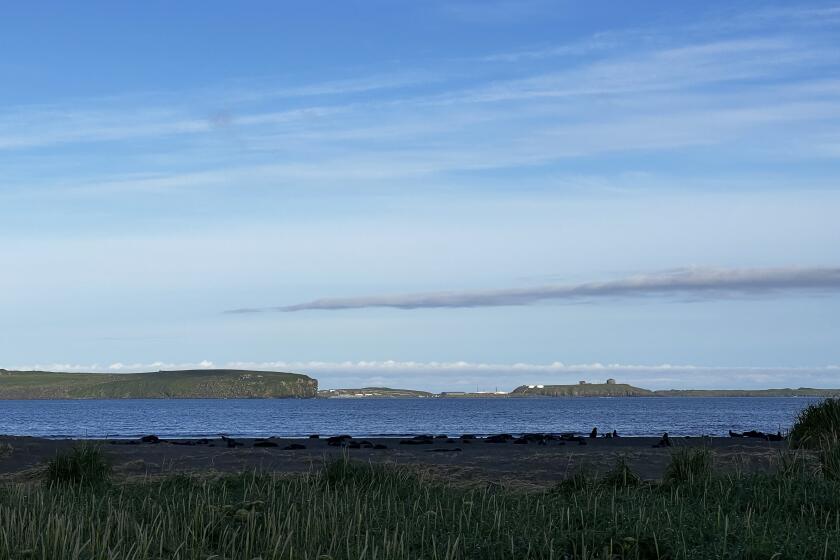Bonobos are co-ed hunters
Contrary to the long-standing image of female bonobos as the peaceful matriarchs of their species, scientists have observed the creatures capturing, killing and eating young monkeys in the lowland evergreen forests of Salonga National Park in the Democratic Republic of Congo.
The discovery undermines the conventional wisdom that hunting among primates is an outgrowth of male dominance and aggression, according to a study published Tuesday in the journal Current Biology.
Chimpanzees were the only nonhuman primate species known to hunt monkeys, and scientists had surmised that the jaunts were an elaborate male-bonding exercise.
Bonobos are the closest cousins of chimps and humans, but because bonobo society is dominated by females, researchers had figured that their peaceful demeanor made them disinclined to hunt prey larger than squirrels, rodents and duikers, a small antelope species.
There was evidence that bonobos ate monkeys -- most notably the discovery of a black mangabey digit in a pile of fresh feces -- but experts didn’t know whether the bonobo in question had hunted the prey or merely appropriated it from another predator.
Scientists from Germany’s Max Planck Institute for Evolutionary Anthropology and their colleagues staked out a community of 33 bonobos for five years and witnessed three successful hunts of red-tail monkeys and Wolf’s guenon.
The bonobos, both male and female, appeared to silently coordinate their attacks by positioning themselves at the bottom of trees. When the time was right, two or three bonobos raced up the trunks to chase the monkeys in the branches above. The pursuits lasted only a few minutes, said Gottfried Hohmann, the study’s senior author.
The bonobo that captured the monkey controlled the resulting feast by doling out pieces of meat to those that made “begging gestures” or by allowing fellow hunters to dine on the carcass, according to the report.
“We still do not know what triggers a hunt,” Hohmann said.
--




